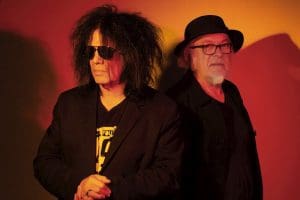Psilocybin Laws in the United States: A Comprehensive Overview

Psilocybin, the psychoactive compound found in certain species of mushrooms, has seen a fluctuating legal status in the United States over the past several decades.
Psilocybin, the psychoactive compound found in certain species of mushrooms, has seen a fluctuating legal status in the United States over the past several decades. The compound is classified as a Schedule I substance under the federal Controlled Substances Act, signifying it is considered to have a high potential for abuse and no accepted medical use. However, research into the therapeutic potential of psilocybin has grown, leading to a re-evaluation of this status in various jurisdictions and fostering a debate on the national level.
The landscape of psilocybin laws across the country is as diverse as the states themselves. Some states have taken measures to decriminalize the possession of psilocybin mushrooms, while others have initiated research into their medical benefits. Cities like Denver, Colorado, and Oakland, California, have led the change by passing resolutions that effectively decriminalize the use and possession of psilocybin, urging law enforcement to treat these activities as their lowest priority.
Despite changes at the state and city level, psilocybin remains illegal under federal law. The disconnect between federal and local regulations creates a complex legal environment for individuals and organizations interested in the substance. Meanwhile, the U.S. Food and Drug Administration (FDA) has designated psilocybin therapy as a “breakthrough therapy” for major depressive disorder, which could accelerate research and potential medical use approvals. This evolving legal landscape reflects a shift in societal attitudes towards psychedelics and their place in public health discussions.
Federal Psilocybin Legislation
Federal regulation of psilocybin in the United States derives mainly from its classification as a controlled substance. This legislation affects all states uniformly, superseding any state-level initiatives regarding psilocybin.
Controlled Substances Act
Under the Controlled Substances Act (CSA), which Congress passed in 1970, psilocybin is classified as a Schedule I substance. This categorization indicates that it is viewed as having a high potential for abuse, no currently accepted medical use in treatment in the United States, and a lack of accepted safety for use under medical supervision.
- Schedule I Criteria: High potential for abuse, no accepted medical use, lack of safety.
Drug Enforcement Administration Classification
The Drug Enforcement Administration (DEA) is responsible for enforcing the scheduling decisions under the CSA. Psilocybin’s position as a Schedule I drug implies that the DEA considers it to have no medical value and significant potential for addiction and misuse.
- DEA Role: Enforce CSA schedules.
- Psilocybin Status: Schedule I Drug.
Federal Enforcement Policies
The enforcement of psilocybin-related laws falls under federal agencies, primarily the DEA. Despite varying local and state approaches to psilocybin decriminalization, federal law maintains uniform prohibitions and penalties for its distribution, manufacture, and possession.
- Federal Agencies: DEA primary role.
- Law Application: Uniform across states, despite local variations.
State-Level Psilocybin Regulations
In the United States, state-level regulations about psilocybin, the psychoactive component in psychedelic mushrooms, vary significantly, with some states leading in decriminalization efforts, medical research, and therapeutic applications.
Decriminalization Efforts
Several cities and states have made strides to decriminalize psilocybin, reducing the penalties associated with its possession and use. For instance, Oregon became the first state to decriminalize psilocybin in 2020 under Measure 109. In Denver, Colorado, Initiative 301 was passed in May 2019, which made the personal use and possession of psilocybin mushrooms among the lowest law enforcement priorities.
Medical Research Initiatives
- California: Researchers at Johns Hopkins University have been permitted to study psilocybin for treatments for various mental health conditions.
- New York: NYU Langone Health has established a psychedelics research group focusing on psilocybin’s potential therapeutic effects.
Psychedelic Therapy Legislation
Oregon’s Measure 109 not only decriminalized psilocybin but also allowed for the creation of a program for administering psilocybin in a therapeutic setting under supervision. Additionally, several states are reviewing similar legislative proposals that would regulate the use of psilocybin for mental health therapy.
- The Healing Center Initiative in California: Aims to establish licensed facilities where patients can receive psilocybin therapy.
- Vermont and Texas: Both states are exploring bills that would permit the use of psilocybin for mental health treatment in clinical settings.
Legal Implications and Court Cases
In the United States, psilocybin—the psychoactive component found in certain species of mushrooms—remains a Schedule I substance under the Controlled Substances Act. The legal landscape is complex and several court cases have helped shape the current status of psilocybin-related laws.
Landmark Judicial Rulings
- Gonzales v. O Centro Espirita Beneficente Uniao do Vegetal (2006): The United States Supreme Court acknowledged the União do Vegetal church’s right to use hoasca, a tea containing a Schedule I substance similar in legal regards to psilocybin, for religious ceremonies under the Religious Freedom Restoration Act.
- Kennedy v. DEA (1990): This case challenged the DEA’s scheduling of psilocybin but upheld the substance’s Schedule I status due to lack of accepted medical use and high potential for abuse.
Prosecution of Psilocybin-Related Offenses
- Frequency of Prosecution: Prosecution for psilocybin possession, sale, or cultivation is generally consistent with its Schedule I designation; however, certain jurisdictions have deprioritized its enforcement.
- Key Statutes and Penalties: Penalties for psilocybin offenses can range from fines to imprisonment, often depending on the amount of the substance and the state in which the offense is committed.
Legal Defenses and Precedents
- Religious Use: Some defendants have attempted to use the Religious Freedom Restoration Act as a defense, with varying success.
- State vs. Federal Law: In states where psilocybin therapy has been legalized, or decriminalized, individuals may still be at risk of federal prosecution, creating a complex interplay between state and federal laws.
Since you’re here …
… we have a small favour to ask. More people are reading Side-Line Magazine than ever but advertising revenues across the media are falling fast. Unlike many news organisations, we haven’t put up a paywall – we want to keep our journalism as open as we can - and we refuse to add annoying advertising. So you can see why we need to ask for your help.
Side-Line’s independent journalism takes a lot of time, money and hard work to produce. But we do it because we want to push the artists we like and who are equally fighting to survive.
If everyone who reads our reporting, who likes it, helps fund it, our future would be much more secure. For as little as 5 US$, you can support Side-Line Magazine – and it only takes a minute. Thank you.
The donations are safely powered by Paypal.










